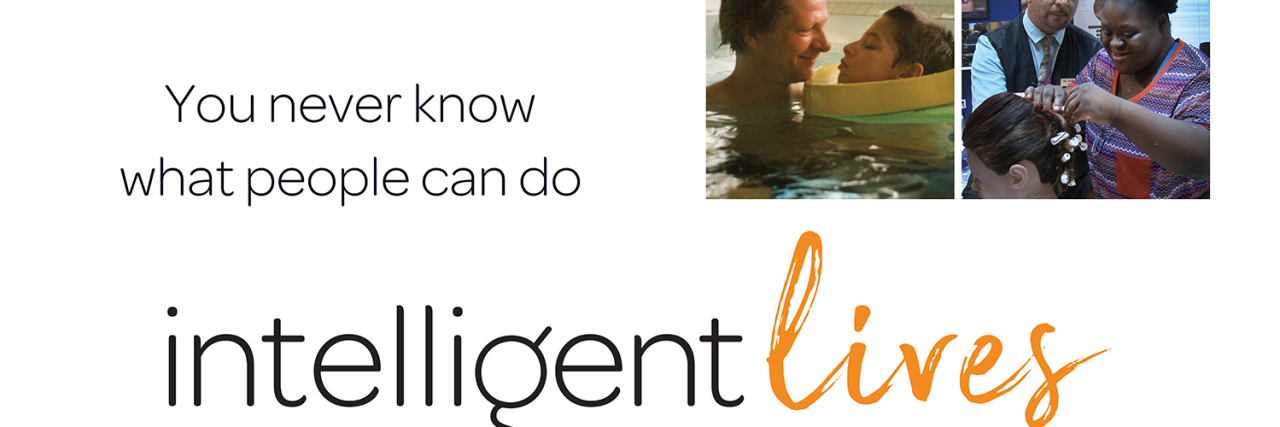How 'Intelligent Lives' Challenges Stereotypes Surrounding Intellectual Disability
My new documentary film “Intelligent Lives” will be shown four times at the ReelAbilities Film Festival NYC on April 7-8, 2019. My son Samuel and I will be discussing the film at the 10 a.m. and 4:30 p.m. screenings on April 7th. Here is why I made this film.
What is intelligence?
Is a 32-year-old man who co-teaches Syracuse University classes intelligent? What about a 25-year-old woman who charms her way into the job of her dreams? How about a 17-year-old young man whose paintings are exhibited at major universities in Boston? Are they intelligent?
Would your opinion change if you knew that, as recently as the 1970s, all three of these people would have likely been institutionalized and forcibly sterilized?
I decided to create “Intelligent Lives” to explore an overarching question:
Can any attempt to measure intelligence predict a person’s value, or potential to contribute meaningfully to the world?
The film follows three pioneering young adults with intellectual disabilities – Micah, Naieer, and Naomie – who challenge perceptions of intelligence as they navigate high school, college and the workforce.
If Micah, Naomie, and Naieer had been born in the in the first half of the 20th century, their parents would have likely been counseled to send their children to live in an institution alongside hundreds or thousands of other people with disabilities. They might have been among the approximately 65,000 Americans forcibly sterilized in order to “improve the stock” of humanity during the U.S. eugenics movement. As recently as 1975, Micah, Naieer, and Naomie would not have had legal access to a public education.
But Micah was born in 1984. Today he is student at Syracuse University with a vibrant social life, a job co-teaching university classes, a sophisticated grasp of social media – and an IQ of 40. Naieer was born in 1999. He is a talented visual artist, immersed in general education classes and basketball games at a public high school in Dorchester, MA. Naomie is 25, she sings and dances in her Providence, Rhode Island Creole church alongside her hip-hop producer brother, and she is working towards her first paid job.
These three stories are intertwined with evolving perspectives on the nature of intelligence. Chris Cooper and his wife Marianne Leone Cooper share their connection to the film’s central themes: their son, Jesse, whose intelligence was continually questioned because he had cerebral palsy. Jesse went on to defy these assumptions, becoming a high school honor student, poet and activist before his sudden death at age 17.
When my son Samuel was in elementary school, his teacher suggested that we add intellectual disability to his already impressive list of categories (“orthopedic impairment,” “speech impairment” “mitochondrial disorder”).
“It’s just a label,” she assured us. “It would make him eligible for more services.”
My wife Betsy and I felt queasy.
Though “intellectual disability” was certainly better than its predecessors (“mentally retarded,” “feeble-minded,” “idiot”), the label seemed to suggest that Samuel’s intellect was so disabled that he couldn’t possibly be in class alongside his peers.
We went instead with “other health impaired,” a generic sounding special education category.
My 2008 documentary film, “Including Samuel,” focuses on Samuel’s elementary school years and our family’s efforts to include him in every aspect of our community. On the little league baseball team. In school theater. And most importantly, in a regular classroom.
But what about students who have the intellectual disability label? Can they be fully included in regular classrooms? Can they go to college? Can they work? Can they marry?
As I did exploratory research on the topic, I found that only 17 percent of students with intellectual disabilities are included in regular education. Just 40 percent will graduate from high school. And of the 6.5 million Americans with intellectual disability, barely 15 percent are employed.
The label “intellectual disability” still carries the same implications we experienced decades before.
Segregation.
Isolation.
Incompetence.
“Intelligent Lives” is a catalyst to transform the label of intellectual disability from a life sentence of isolation into a life of possibility for the most systematically segregated people in America.

